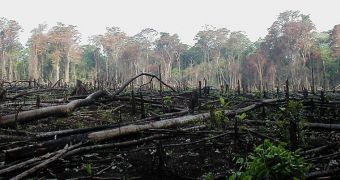The international society agrees that rainforests need to be saved at all costs. Yet, while this much is certain, what remains to be determined is the extent to which local communities will be affected. In most areas that contain rainforests, locals are extremely poor.
One of the most widely proposed methods of reducing the amount of land being deforested is to provide countries housing them with funds to continue their economic development without wood.
But the developed world – which is currently debating how to divide the burden of actually paying for preserving the rainforest – failed to consider the local impact that granting subsidies would produce.
Rural poverty might jump through the roof, analysts say in a new report. Those living in villages near or within the rainforests would be deprived of critical income streams, which would throw them into an even poorer state than they're in at this point.
The new study was conducted by scientists and economists in the United States, the United Kingdom and Africa. The cost-return analysis was carried out for a patch of land covering about half a million square kilometers in Tanzania.
"For an international payment system like the United Nations' new REDD+ Scheme – Reducing Emissions from Deforestation and forest Degradation – it must, at the very least, cover the costs of forest conservation to those that rely on tropical forests for their livelihoods,” says Dr. Brendan Fisher.
“However, the REDD+ scheme has a potentially more intractable problem. Even if the full costs are paid, where will the area's increasing food and fuel demand be met if agriculture stops expanding?” adds the expert, who is the lead author of the new report.
“Payments may mean that deforestation could merely move to areas of tropical countries outside of the REDD+ program,” he says. Fisher holds an appointment as a professor at the Princeton University, and also with the World Wildlife Fund (WWF).
“This would be a serious deficiency as REDD+ is designed to reduce carbon dioxide emissions to tackle climate change,” the expert argues, saying that charcoal production, for example, makes up for about a third of the profit of converting Tanzanian forests and woodlands to agriculture.
Generally, this industry is ignored in cost-benefit analysis, and this oversight can be devastating to local populace, scientists concur.
Details of the new work appear in the current issue of the top journal Nature Climate Change. Researchers at the University of Leeds were involved in the new study as well.

 14 DAY TRIAL //
14 DAY TRIAL //